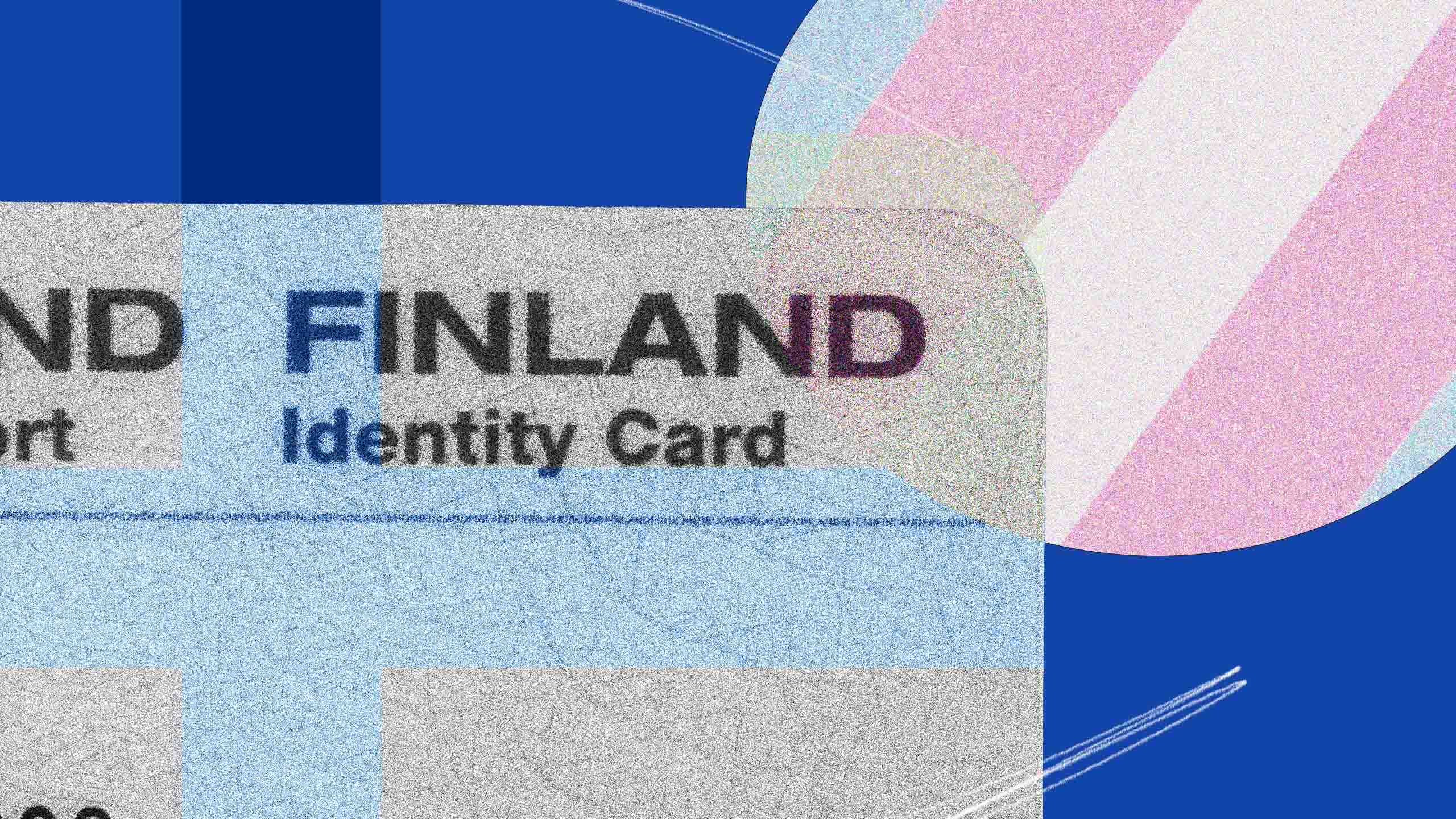On Wednesday, legislators in Finland approved amendments that drastically simplify the process of changing one’s legally recognized gender.
Previously, trans people in Finland were required to obtain a psychiatric assessment and supply a medical certificate proving infertility or sterilization in order to legally change their gender. The new legislation, which does away with those requirements, has been updated for the first time since 2002.
The Parliament of Finland, which has 200 seats, voted 113-69 in support of the amendments. The changes are long-awaited following previous attempts at reform and parliamentary roadblocks.
The reform arrives two months before Finland’s next general election in early April. Throughout her tenure, current Finnish prime minister Sanna Marin has been supportive of trans people’s right to self-identify. The daughter of two mothers, Marin has previously spoken on how coming from a “rainbow family” influenced her views on equality. Marin has alluded to plans by her government to reform the Trans Act since 2020.
However, the reformed Trans Act is ultimately the result of a citizen’s initiative in 2021 that suggested the changes. It saw a flood of support, receiving the required 50,000 signatures after only one day, with 68,374 signatures in total before being sent to Parliament.
While the act has now passed, it has some deviations from what was initially submitted. For example, the original citizen’s initiative proposed that trans people be able to change their legal gender after age 15 with a legal guardian’s permission. The final version increases the minimum age to 18. Additionally, to prevent misuse of the law, citizens can submit requests to change their legal gender only once a year.
Human rights organization Amnesty International (AI) has a history of advocating for trans rights in Finland. In a news release, they acknowledged the significance of the legislation passing, but expressed disappointment it does not apply to minors. In a statement, Matti Pihlajamaa, Amnesty International Finland’s LGBTI rights advisor, says the exclusion of children “violates the UN Convention on the Rights of the Child [UNCRC].” The UNCRC is a treaty created by the United Nations that provides a full list of rights for children under 18. “We will continue to call on the government to amend the legislation accordingly to ensure it advances the rights of children,” he continued.
The new Finnish legislation is the latest development in Europe’s slowly advancing progress on trans rights. Transgender Europe (TGEU) is a network of organizations dedicated to furthering trans rights and fighting discrimination. According to them, while 2021 saw an unfortunate lull in developments, 2022 represented a small comeback. Positive changes in 2022 included France joining Malta in banning conversion therapy for trans people of all ages. In addition, Denmark made the highest number of legal changes, passing new laws that explicitly protect trans people from discrimination.
Transgender Europe publishes a Trans Rights Map annually in May. It shows the legal status of trans rights in 49 countries in Europe and five in Central Asia. In 2022, the map showed that of 39 countries offering legal gender recognition, 28 require a mental health diagnosis, while nine demand sterility. Since the map was released, Andorra adopted its first gender recognition law.
Europe lags behind Canada in this regard. In Canada, surgical intervention is not a requirement to change legal gender, with New Brunswick becoming the last province to remove the provision in 2017. There was a Quebec bill that would have reversed this progress, but fortunately it was scrapped after residents protested in 2022.
For the most part, Finland has been trailing the other Nordic countries regarding rights for trans people. It is the final Nordic country to remove the requirement of sterilization or infertility to change one’s legal gender and is second-last to no longer require a psychiatric assessment (Sweden still requires it). Finland is also one of three Nordic countries, including Denmark and Sweden, that still does not support legal gender recognition for minors.
Notable is that among Nordic countries, Iceland is still the only one to recognize non-binary identities fully (Denmark recognizes them in one of two regions). Unfortunately, this latest Finnish reform does not seem to acknowledge non-binary individuals.
Despite these issues, Finland ranked third on the 2022 Social Progress Index, which ranks 169 countries based on development in areas like nutrition and basic medical care, personal rights and inclusiveness. Nordic countries are generally considered very progressive, with Norway and Denmark ranking first and second, respectively, while Iceland and Sweden are fifth and sixth.
In the Amnesty International news release, Pihlajamaa expands on what this reform means for Finland. “By passing this act, Finland has taken a major step toward protecting trans people’s rights and improving their lives and right to self-determination,” he says.


 Why you can trust Xtra
Why you can trust Xtra


